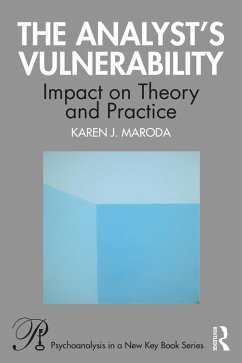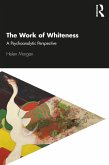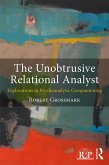Linking the analyst's early childhood experiences to ongoing vulnerabilities reflected in theory and practice, this book favors an approach that focuses on feedback and confrontation, as well as empathic understanding and acceptance. Essential to this task, and a thesis that runs through the book, are analysts' motivations for doing treatment and the gratifications they naturally seek. Maroda asserts that an enduring blind spot arises from clinicians' ongoing need to deny what they are personally seeking from the analytic process, including the need to rescue and be rescued. She equally seeks to remove the guilt and shame associated with these motivations, encouraging clinicians to embrace both their own humanity and their patients', rather than seeking to transcend them. Providing a new perspective on how analysts work, this book explores the topics of enactment, mirror neurons, and therapeutic action through the lens of the analyst's early experiences and resulting personality structure. Maroda confronts the analyst's tendencies to favor harmony over conflict, passivity over active interventions, and viewing the patient as an infant rather than an adult.
Exploring heretofore unexamined issues of the psychology of the analyst or therapist offers the opportunity to generate new theoretical and technical perspectives. As such, this book will be invaluable to experienced psychodynamic therapists and students and trainees alike, as well as teachers of theory and practice.
Dieser Download kann aus rechtlichen Gründen nur mit Rechnungsadresse in A, B, BG, CY, CZ, D, DK, EW, E, FIN, F, GR, HR, H, IRL, I, LT, L, LR, M, NL, PL, P, R, S, SLO, SK ausgeliefert werden.
"As one of the leading relational thinkers of our time, no one has tackled the subject of the analyst's vulnerability as deftly and thoroughly as Karen Maroda. By examining what is often unspoken, undisclosed, and secret in the clinician's life and consulting room, she opens up a permissible space to discuss and critique how the analyst's early childhood experiences impact one's intrapsychic and interpersonal development. Through a brave new expedition into psychoanalytic honesty, Maroda examines how we both sacrifice and gain from our therapeutic relationships. She astutely reminds us that good analytic work must include effective emotional engagement and authentic relatedness as an ethical expression of being." -Jon Mills, PsyD, PhD, ABPP, Postgraduate Programs in Psychoanalysis & Psychotherapy, Adelphi University; author of Debating Relational Psychoanalysis.
"Central to the human condition and often a motivating factor in choosing to become a psychoanalyst, until now, the clinician's vulnerability has largely been neglected in the literature. In this beautifully written volume, Karen Maroda corrects for that by exploring the numerous ways in which analyst fragility, sensitivity and other expressions of humanity directly impact psychoanalytic treatment. Breaking new ground and generously illustrated with clinical examples throughout, this important book deserves a central spot in every psychotherapist's library, regardless of theoretical orientation." - Dr. Steven Kuchuck, President, International Association for Relational Psychoanalysis and Psychotherapy, Author, The Relational Revolution in Psychoanalysis and Psychotherapy, Editor, Clinical Implications of the Psychoanalyst's Subjectivity









